ECOLEADERS’ NEWSLETTER
Photo by Harry Van Baaren
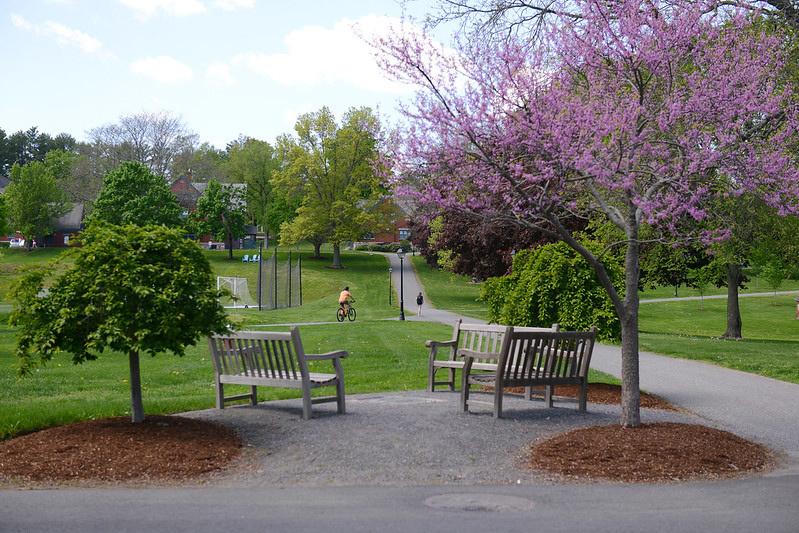
GLOBAL NEWS
NEWS OF THE MONTH
Read to learn about worldwide climate news! This month, we feature news on unsafe air and how heatwaves affect farmers in Africa
This spring break NMH Study abroad took a trip to Belize! Read to learn about the various service projects and environmental centered learning the students experienced
HITCHCOCK CENTER
BELIZE NMH TRIP
Learn about the Hitchcock Center in Amherst, Mass, an educational and environmental resource center that has net zero energy and is completely sustainable Opportunities to get involved included!
Want to learn what it means to be a living building, and why Net Zero is so important? Read about what the Hitchcock center is, and volunteer and job opportunities that the site offers!
WHAT’S UP WITH THE ECOLEADERS
ENDANGERED SPECIES
Read to learn more about the Ecoleader’s recent work, including Green Cup Challenge and the NMH Climate Summit 2024. Get excited for the upcoming Climate Action Week in April!
Northfield Mount Hermon March 2024
GLOBAL NEWS
by Jane Namusisi
SCAN THE QR CODES TO LEARN MORE!
UNSAFE AIR IN MOST COUNTRIES IN THE WORLD
Unsafe air quality is a universal concern cutting across borders, as highlighted in a recent New York Times article. The article shows the pervasive challenge of poor air quality affecting countries worldwide, irrespective of their economic status or geographical location. It emphasizes the impact of air pollution from industries, vehicle emissions, agricultural practices, and burning of fossil fuels on public health. It calls for collective action and international cooperation to address this shared problem as it contributes to premature and child deaths, and health implications such as respiratory diseases, cardiovascular health, and harm to overall well-being. Strict regulations and cleaner technologies should be implemented to combat air pollution.
Photo by NPR
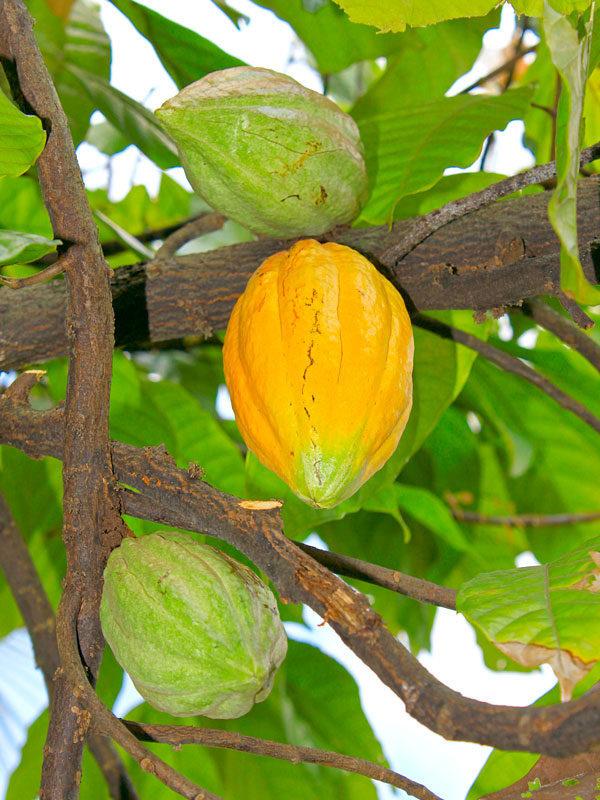

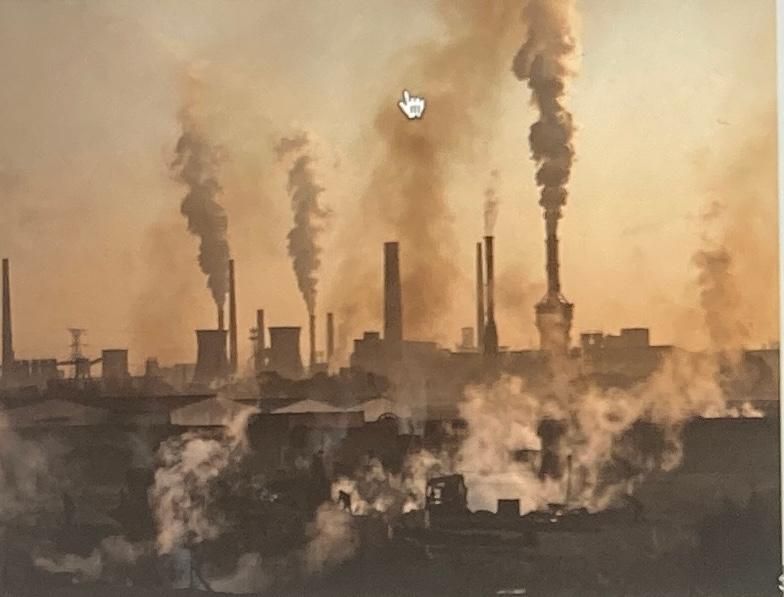
HEATWAVE IN WEST AFRICA AND ITS IMPACT TO FARMERS
In February 2024, West Africa experienced a heat wave that was intensified by the climate crisis going on in the world The heat wave affected many people by leading to early deaths and cases of illness. The extreme heat also had a devastating impact on the region’s cocoa crop which is a major source of income for many farmers in West Africa. The heat wave caused cocoa trees to wither and die leading to a significant drop in production This was due to high temperatures and lack of rain damaging the crops In March, major cocoa plants in Ghana stopped producing due to the heat. The heat also increased evaporation and left the crops without moisture in the soil.


1
Andrew Ibarra / NOAA via AP
Scan to read articles!!
THE UNBELIZABLE TRIP: NMH IN BELIZE!
by Jane Namusisi

On March 2, 2024, twelve students and three faculty members went on a service-oriented trip to Belize. Students learned different things about the environment including the natural flora and fauna of the area, various species of trees and their uses, and other information about zoo animals. The marine station presented a slideshow on issues in the local environment and how we can help. Students embarked on a mission to help clean the ocean and address the pressing issue of plastic pollution. One of the primary objectives was to clean the coastline. With the help of an island guide, faculty and students removed and collected plastic waste and other debris from the coastline. In addition to cleaning, the group actively weighed, counted, and recycled the plastic, wood, trash, and other found materials. Working in groups they put the collected items in different bags according to what kind of trash it was, encouraging proper waste management and recycling. It was a successful effort to reduce the amount of plastic waste and debris that ends up in oceans and pollutes the environment.
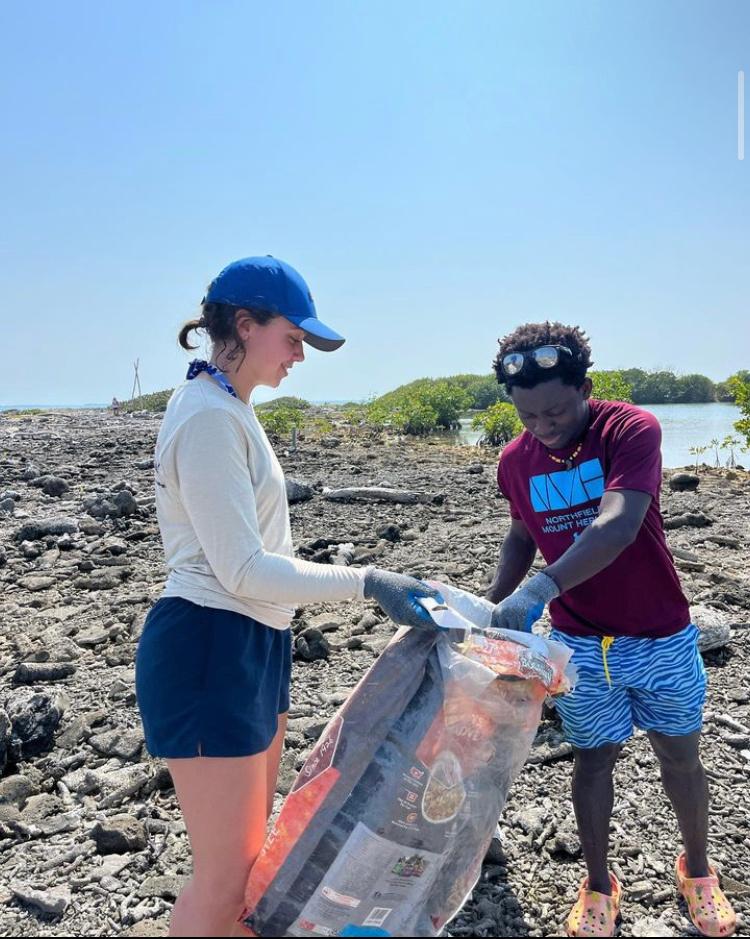
During the service learning project, students also learned about the specific effects of plastic nurdles found on islands. Plastic nurdles are small plastic pellets used in the production of various plastic products. Unfortunately, these nurdles often end up in the ocean, posing a threat to marine life. These nurdles were collected in order to properly dispose of them and raise awareness about their harmful effects. Most student interviewed said it was a transformative experience, allowing them to witness the impact of their actions on the environment. By cleaning the ocean, recycling plastic, and addressing the issue of plastic nurdles, NMH Study Abroad aimed to create an environment for all.

2
Photos by NMH TRAVEL INSTAGRAM
HITCHCOCK CENTER
by Charlotte Relyea-Strawn
WHAT IS IT AND WHY IS IT SO COOL?
The Hitchcock center located in Amherst, Massachusetts, is not just a regular building that offers activities to kids! It is unique because it is the 23rd Certified Living Building in the world and the 4th one in Massachusetts! It is a living building because it has net zero energy meaning it is completely sustainable. What is net zero? Net zero means that the greenhouse gasses being produced and taken out of the atmosphere are balanced so there isn’t an increase of carbon dioxide in the air. Specifically the Hitchcock center uses net zero energy for building its own harvests, recycling water, composting toilets, and eliminating toxic materials
OPPORTUNITIES FOR KIDS
It is an immersive building for kids with many hands-on activities and a great way to learn about the environment and climate change.Kids and teens are given the skills and tools to help our planet’s ecological system, sustainable communities, and effective economies that they can implement into their everyday lives
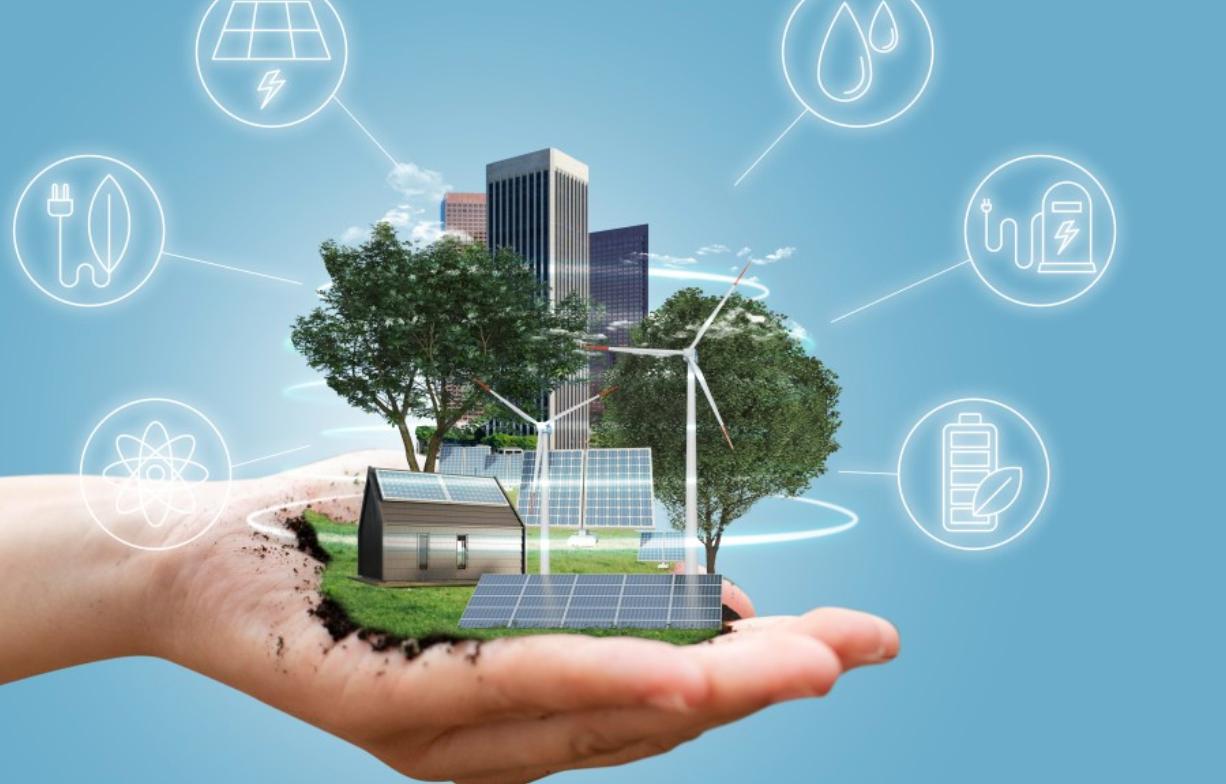

COMMITMENT TO DIVERSITY EQUITY AND INCLUSION
The Hitchcock center aspires to have a community that highlights diversity, equity, and inclusion. They recognize that they are mostly white, and privileged to be able to learn and grow in a place like this They constantly are adjusting their mission and goals to become more aware of white supremacy and how to be inclusive of everyone The Hitchcock center also lies on Indigenous Peoples land, so to be able to teach there they have to acknowledge that it is stolen land and honor the people who made this place the way it is now
AWARDS THEY’VE RECEIVED
The have received many awards such as the 2019 Secretary’s Award for Excellence in energy and Environmental Education/MA Office of Energy and Environmental Affairs, Boston, 2018 Honor Award for Sustainable Design/Boston Society of ARchitects, Boston, and 2019 Certified Living for Achieving the Living Building Challenge/International Living Future Institute, Seattle
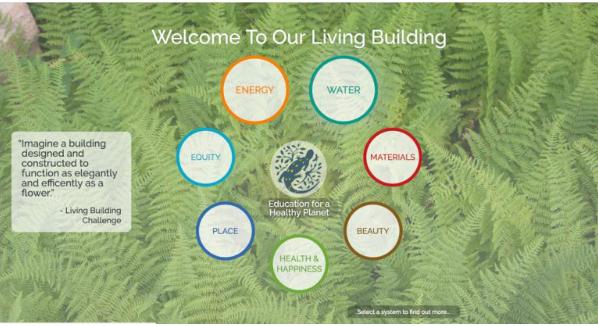
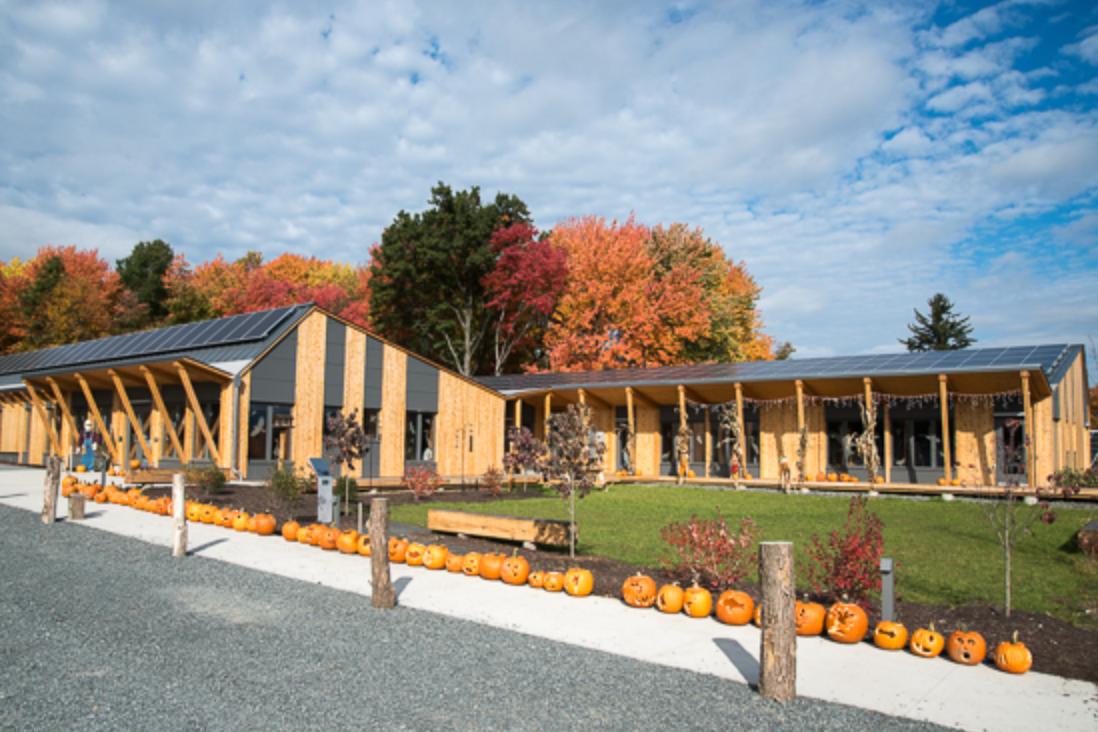

3
Photos by Hitchcock center
Photo by national grid
OPPORTUNITIES
WANT TO KNOW HOW YOU CAN GET INVOLVED?

The Hitchcock center offers camps, volunteer opportunities and activities for kids and adults! They focus on mastering skills you can use throughout your life, exploring different ecological systems, understanding how to live with the goal of long term well being for the planet, and engaging with each other to gain new perspectives and grow and learn from stories
Volunteer opportunities:
Working in the garden
Volunteering to work with elementary school kids as an educator
Other education programs
Maintaining the trail systems
Helping out in the admission building
Activities to participate in:
Every year the hitchcock has a schedule with a variety of activities and events you can attend
A course on feeding birds in the spring
A nature walk for senior citizens
Taking tours of the hitchcock center with a group of people or yourself
Book talks, for example: All We Can Save- Truth, courage, and solutions for the climate crisis
School and work!
Schools can go on field trips to the Hitchcock center to understand what the building is and take a closer look Internships are available for students and graduates to build more experience in the environmental field Anyone 18 or older can apply to be a counselor for the summer camps that happen from June-August!
4
Photo by Hitchcock center
Photo by Carl Donohue
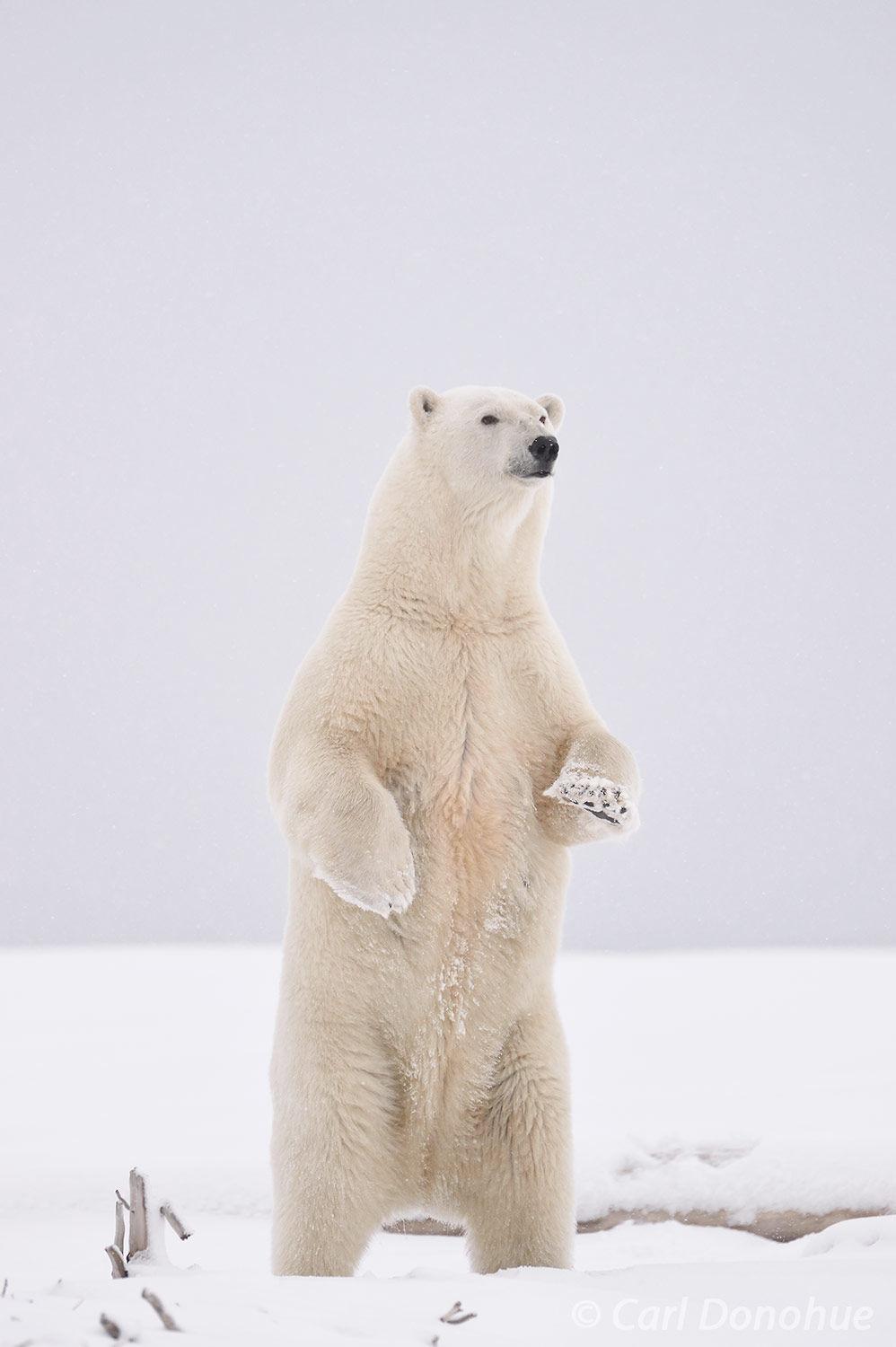
ENDANGERED SPECIES: WHY PROTECT THEM?
by Jasper Neff
In conversations about climate change, you have probably heard the expression “save the polar bears!” numerous times. The ice that polar bears depend on for habitat is melting at alarming rates due to rising global temperatures, resulting in the classification of these bears as an endangered species. But polar bears are not the only ones....
An endangered species is any group of animals that is at risk for extinction, meaning it will no longer be found anywhere on Earth and cease to exist. According to the World Wildlife Fund (WWF), humans are responsible for 99% of endangered species, causing the current extinction rate to be 1,000 to 10,000 higher than the natural rate. The protection of these animals is one of the most pressing environmental issues of our time. But the reasons to protect these critters stretch far beyond our moral obligation to prevent any lifeform from disappearing forever. Read further to discover how endangered species maintain the health of our planet, cure diseases, and even improve the economy!
ECOLOGICAL IMPORTANCE:
One of the central reasons for protecting endangered species is their contribution to biodiversity. All organisms and their interactions make up a complex web of relationships and ecological processes that sustain life A variety of species is necessary to maintain a healthy ecosystem, and when one species disappears, all the others that rely on them for survival are threatened Food chains are a great example of this process. When a species at the bottom of the food chain goes extinct, it threatens the animals who eat that organism, and the animals that eat them, and so on and so forth. Similarly, if an apex predator is endangered, it could cause spikes in prey population that reduce vegetation and trigger erosion The loss of one species is enough to disrupt entire ecosystems Additionally, endangered species often serve as indicator species, meaning that their decline hints at larger problems in their ecosystem as a whole. Without healthy ecosystems like forests and oceans, humans do not have clean water, air, or land. By allowing species to become endangered, we are risking our own health as well as that of the other animals that rely on them
5


AGRICULTURE AND POLLINATION
MEDICAL
Endangered species also provide invaluable resources such as food and medicine. Over half of the most commonly prescribed medications were originally derived from plants With only 5% of known plant species having been tested for medical properties and the prevalent amount of incurable diseases, we cannot allow any plants to go extinct before we know what they are capable of. There are already plenty of species whose medical uses we are at risk of losing, such as the endangered rosy periwinkle which is responsible for two anticancer compounds
Wild relatives of common crops containing genetic material serve as references that enable us to maintain our crops. They provide information to ensure our harvests remain disease resistant, and help with research to develop new crops that can live in less fruitful areas Farmers use insects and plants with natural toxins to prey on and repel pests in effective, inexpensive, and healthy ways Such processes will remain necessary to feed growing populations. Similarly, humans are dependent on endangered species like bees and monarch butterflies to pollinate our food. The loss of these species means less seed and fruit production, resulting in a dwindling food supply and the extinction of many important plant species.
ECONOMIC
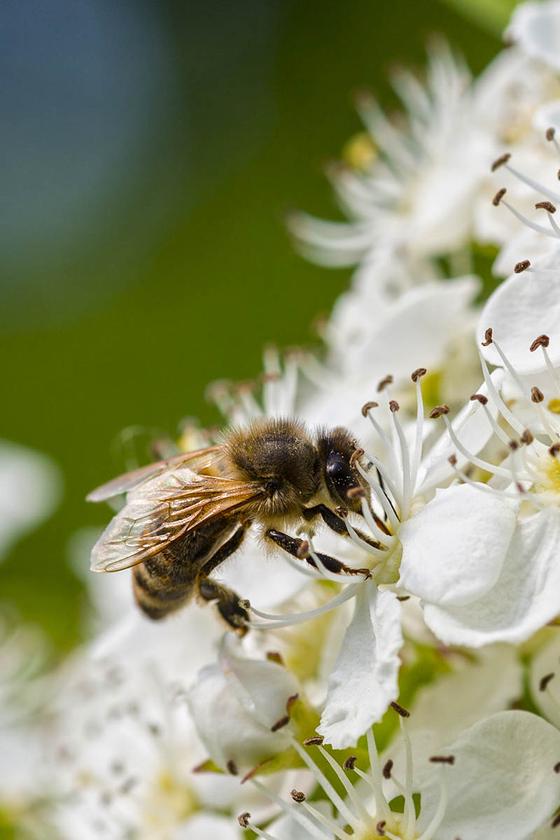
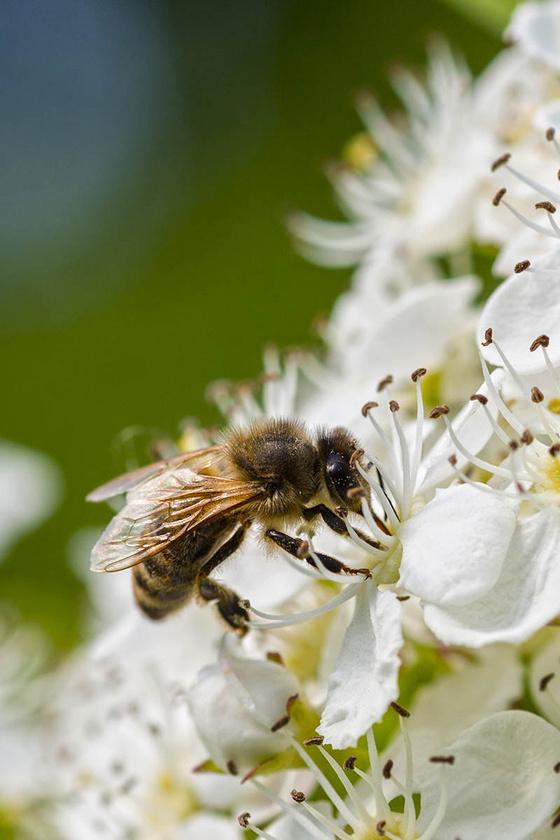
The reasons to protect endangered species are almost as bountiful as the amount of species that need our protection Habitat destruction, pollution, over-exploitation, and climate change are some of the leading causes of species loss. By taking action against these issues, we can ensure the conservation of life on this planet, including the sustainability of the human population.
While this article focused on the reasons to protect endangered species, we could write 1000 more articles on this topic as a whole! Scan here to learn more about specific threats to endangered species, and how we can help.


This loss of life could also deal a lethal blow to our economy According to the U N , endangered species could cost 18 percent of global economic output by 2050. For example, the fall in bee population has cost the $50 billion global honey industry large margins of its profit. Similarly, tourism industries that are job intensive and generate millions of dollars in revenue rely on many organisms and their ecosystems to attract visitors, like with U.S national parks. Whale watching alone pumped $2 billion into the global economy in 2009. The preservation of these ecosystems and their inhabitants are necessary to sustain the travel industry, and continue the upward trajectory of our economy.
6
Photos by DGB Group and Gardener’s Path
WHAT’S UP WITH THE ECOLEADERS?
As we continue our journey toward a greener campus and more sustainable world, here's a glimpse into the Ecoleaders recent projects...
GREEN CUP CHALLENGE AND NMH CLIMATE SUMMIT 2024
Thanks to hard work from the Ecoleaders and the enthusiastic participation of the NMH community, this year’s Green Cup was a resounding success! This annual event is a school-wide competition that strives to promote sustainable habits and foster collective climate action at NMH. Over the course of three weeks, students worked to lower their energy consumption in dorms and complete individual sustainable actions. Ecoleaders tracked dorm energy percentages with help from facilities with C4, C2, and Shea reducing their energy the most at the end of each separate week. Students also earned points though individual actions such as calculating their carbon footprint, eating plant based, or attending documentary showings, writing to legislators workshops, and other events hosted by Ecoleaders. At the end of the challenge, LSC came in 1st with a final score of 1874 and a winning submission in the final dorm video challenge!

On February 18th, the Ecoleaders organized the NMH Climate Summit for neighboring schools to come together to learn about the fight against climate change. The day started with a warm welcome from Wilson Cheung‘ 24 and an introduction to the purpose of the summit, before migrating to keynote speaker David Newman’s speech on climate knowledge and solutions. Students split into workshops in the morning and afternoon to hear from some of the speakers listed below:
Digaunto Chatterjee- vice president of system planning at Eversource Energy. Workshop on Energy Policy 101
Sofia Assab- Sustainability consultant, specializes in sustainable development and economics. Workshop on Sustainability in the mainstream.
David Newman- Former environmental lawyer, owner of Arthur’s Point Farm (native plant nursery). Workshop on natural climate solutions.
Brittany Gutermuth- works at Mass Audubon and is one of the mentors of the youth leaders in YCAN. Workshop on how to use art as activism.
7
(continuing from the previous page)
The interactive day finished with schools sharing future plans for climate action, a Q+A panel with the speakers, and closing remarks. There were 70 students in total coming from NMH, SBS, Andover, The Putney School, Eaglebrook, and Deerfield. It was an amazing opportunity for leaders from various schools to collaborate by sharing and learning together!
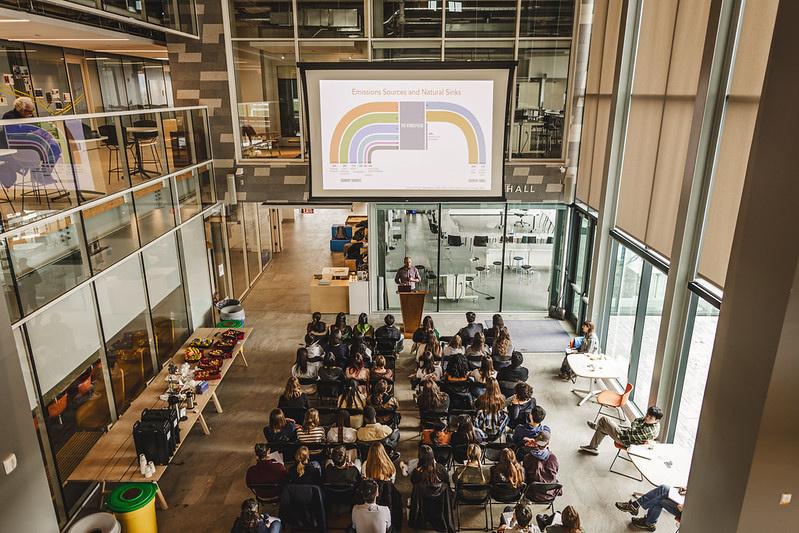

COMING SOON...CLIMATE ACTION WEEK
 by Jasper Neff and Charlotte Relyea-Strawn
by Jasper Neff and Charlotte Relyea-Strawn
The Ecoleaders are currently planning Climate Action Week 2024, and we are so excited about what we have in store for you this year. Stay tuned for upcoming events and more information on climate teach-in day as we prepare to celebrate our Earth on April 22nd!

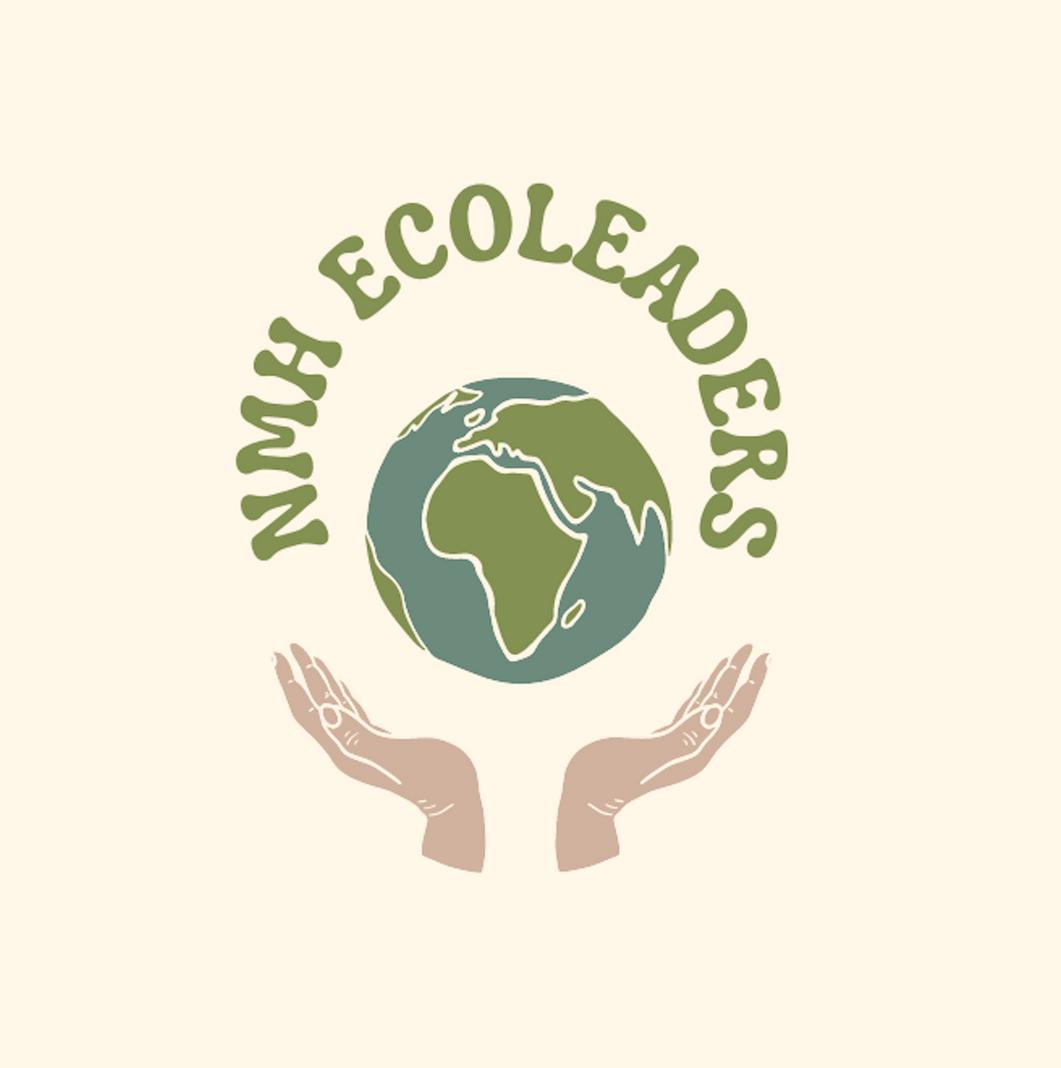
8

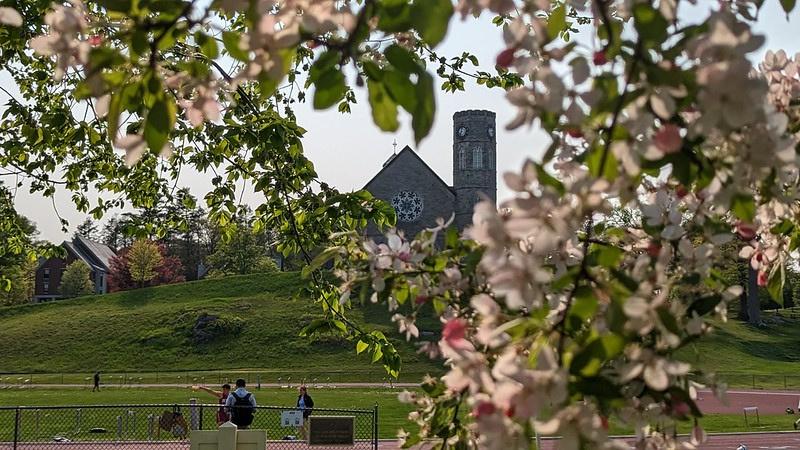


by Jasper Neff
9 REACH US AT LET’S WORK TOGETHER TOWARDS A MORE SUSTAINBLE FUTURE ecoleaders@nmhschool org SUBMIT ANY QUESTIONS, IDEAS, OR CONCERNS!!! REFERENCES
Layout


























 by Jasper Neff and Charlotte Relyea-Strawn
by Jasper Neff and Charlotte Relyea-Strawn





